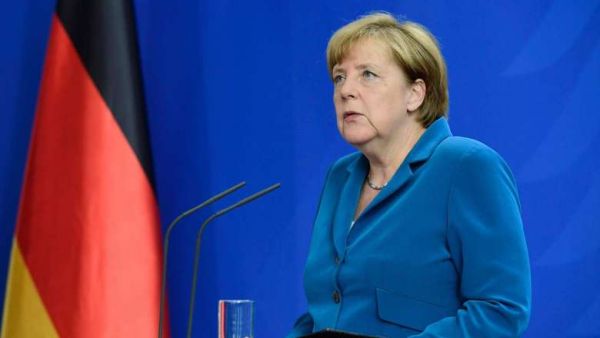German Chancellor Angela Merkel defended her refugee policies in the face of a recent electoral setback to a right-wing party in her home state, saying Wednesday that "the situation today is many times better than it was a year ago."
Merkel, whose Christian Democrats (CDU) fell behind the anti-immigration Alternative for Germany (AfD) party in the north-eastern state of Mecklenburg-Vorpommern Sunday, added that "there is of course a lot left to do."
The chancellor said that her government had introduced measures to integrate hundreds of thousands of refugees and improve security in the country, but that more work was required to win back the trust of disaffected voters.
She acknowledged that her government still needs to improve the mechanism to send back failed asylum seekers and those whose bid is unlikely to succeed, saying, "we need to tell them to leave, or else we cannot manage the job" of integration.
The comments come three days after the AfD won 20.8 per cent of the vote in Merkel's mostly rural home state, displacing the centre-right CDU as the second-strongest party in the region. The result means the AfD can enter the state parliament for the first time.
Its eurosceptic, anti-migrant message has also propelled it into third place in national opinion polls, meaning it is likely to enter the Bundestag after next year's general election.
"We are all spurred by one question: how do we deal with this?" Merkel told the Bundestag. "We have to take responsibility. The concerns of voters are to be taken seriously. ... A party like the AfD is a challenge for all of us in this house."
The chancellor, who has come under fire for her failure to explicitly condemn Turkey's sweeping purge of suspected coup supporters, also defended the European Union's refugee deal with Ankara.
She said the deal has led to a significant reduction of migrant deaths in the Aegean Sea, and added that it should be "be a model for similar deals" with countries including Egypt, Libya and Tunisia.
The chancellor was speaking during the annual parliamentary debate about the budget, which is traditionally an occasion for opposition parties to criticize the government's policies.
Dietmar Bartsch, the leader of the opposition Left Party in parliament, said that Merkel's coalition was "de facto done for" ahead of the 2017 general election.
His counterpart for the opposition Green Party, Katrin Goering-Eckardt, criticized the infighting between the CDU and its junior coalition partner, the centre-left Social Democratic Party (SPD).
"The coalition is a coalition of chaos - everyone against everyone else," she said, referring to differences between the two coalition members on policies ranging from domestic security to refugee integration.
By Friederike Heine








